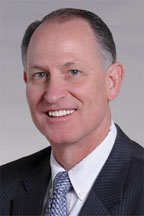Kessler Seeks to Loot West Virginia's Largest Private Sector Employer, Singles Out Wal-Mart for Tax Increase
 Signifying that not every member of the Ruling Party's leadership is on board with Governor Manchin's "West Virginia: Open for Business" program, Senate Judiciary Committee Chairman Jeff Kessler, D-Marshall, plans to introduce in the regular legislative session that begins today a bill identical to a bill vetoed last year by Maryland Governor Bob Ehrlich to tax Wal-Mart and only Wal-Mart to help fund Medicaid.
Signifying that not every member of the Ruling Party's leadership is on board with Governor Manchin's "West Virginia: Open for Business" program, Senate Judiciary Committee Chairman Jeff Kessler, D-Marshall, plans to introduce in the regular legislative session that begins today a bill identical to a bill vetoed last year by Maryland Governor Bob Ehrlich to tax Wal-Mart and only Wal-Mart to help fund Medicaid.
Kessler's bill, which has not yet been introduced, would require any private sector employer with more than 10,000 employees in the state to spend an amount equal to at least 8% of its payroll within the state on subsidizing employee health insurance or pay the difference in the form of a special assessment to the state. In West Virginia, there is only one private sector employer with more than 10,000 employees: Wal-Mart. Maryland has four such employers, but Wal-Mart is the only Maryland employer to not meet the 8% threshold.
The unions and their shills argue that because Wal-Mart does not meet the 8% rule, it is shifting employees whom the unions think should be provided employer-paid health insurance (fact; many Wal-Mart employees do have company-sponsored health insurance) into Medicaid and other government-funded health programs. However, this legislation is nothing more than a proposal for the legalized looting of a private business not in favor with certain politicians.
Identical legislation is being promoted by labor unions in many states. Simply put, having failed to convince Wal-Mart employees to unionize, the unions have decided to use the political process to harass the retail giant and loot its corporate coffers. Grocery stores are one of the last private sector industries in this country to remain heavily unionized. Wal-Mart has brought its business model to grocery retailing and its unionized competitors have been unable to maintain their market share. Since the unions can't get Wal-Mart employees to unionize and thus give them a way to leech from the company, they've decided to get their supporters in government to persecute Wal-Mart & raise its costs of doing business.
As in many other industries, labor unions do not want to lose their grip in grocery retailing because long-established arrangements between the unions and business provide for the support of retirees' pensions and postretirement health care benefits through the dues of workers and contributions by both employers and employees to the union pension and health care funds.
I hope our Legislature--and then if not them, then governor Manchin--will be wise enough to keep this bill from ever becoming law. West Virginia does not need to create one additional barrier or speed bump to doing business here. Should this bill be enacted, how long will it be before the law is amended to cover employers of 5,000? 3,000? 1,000? 500? 250? 100? 50? 10? 5? This is one slippery slope that must be avoided regardless of altruistic intentions.



<< Home